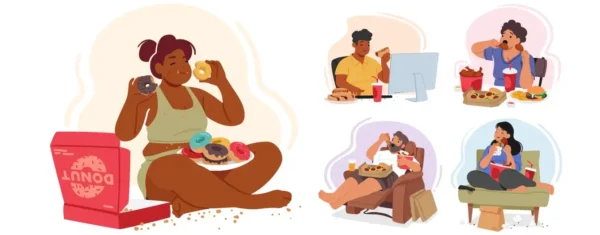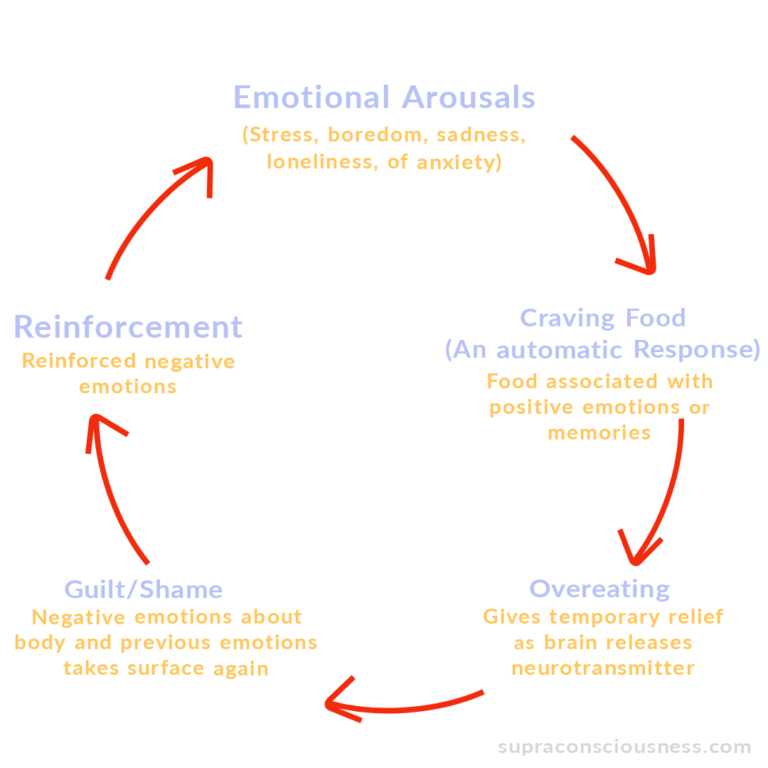
What is boredom eating. How to stop boredom eating
Table of Contents
ToggleHave you ever explored boredom without distracting yourself and without seeking a way out of it? In the present era, where everything is designed to keep you away from boredom, the experience of boredom has become rare. From a very existential point of view, boredom is actually the human capacity for freedom and the responsibility to create meaning in an absurd way when you fail to engage your attention. When Intellectual and emotional plugs come out of the switchboard; it’s boredom that takes place. But read carefully—instead of using the metaphor that emotional plugs come out of a switch, can we say unmet emotional needs? Yes! Well, now it is becoming substantial concerning our topic in this article.
However, I should save the philosophical stance of boredom for another day. Now, let me tell you, boredom is actually an emotion. It’s important to mention that it’s an emotional state before delving into this topic. This is because boredom eating usually comes under emotional eating in psychology or stress eating—a phenomenon that many people experience. Sometimes you aren’t hungry; you are just bored. Boredom eating isn’t necessarily a matter of concern unless it’s leading to health implications and becoming compulsive. Let’s start by differentiating boredom hunger from physiological hunger.
Emotional Hunger or Physiological Hunger?
Why not let yourself figure it out? Instead of writing paragraphs on the differentiation, making it feel like a dull academic exam response, let me pose some questions. By answering these questions honestly, you can gain insights into your eating habits:
- Do I eat because it’s a typical mealtime of the day, or do I feel compelled to eat outside of my regular schedule too often?
- Am I craving a specific type of food, especially something I associate with emotional comfort or satisfaction?
- Do I find myself craving my comfort food too often and feel distressed if the craving remains unsatisfied?
- What emotions do I usually experience (e.g., stress, boredom, sadness, happiness)? when I crave or feel like eating outside of your regular schedule.
- Am I eating slowly and savoring each bite, or am I consuming food without paying much attention, like stuffing myself?
- Do I eat to feel better and calm myself down (e.g., my sadness, feelings of anxiety, and more)?
After differentiating boredom or emotional eating from physiological huger let’s go a layer deeper into emotional hunger by dismantling the processes involved
Cycle of Emotional Eating
Emotional eating often follows a cycle involving triggers, behavior, and consequences. Understanding the crucial steps of how emotional eating takes place can be helpful for breaking the pattern. Have a look on this cycle

It is usually triggered by specific emotions, such as stress or boredom, leading to an automatic response to using food as a coping mechanism. This can be a learned behavior or a conditioned response to dealing with certain emotions. Sometimes it’s an unconscious decision to use food as a coping mechanism. The consumption of food or satisfying cravings leads to temporary relief by triggering pleasure-inducing neurotransmitters.
However, the plot twist is that feelings of guilt and shame often follow because of the realization that you’ve overeaten, and as the food didn’t address the underlying actual issue after a while, these emotions also surface, reinforcing negative feelings and contributing to a habitual cycle and here we go you have been stuck in this cycle of emotional eating. Breaking this pattern requires awareness of emotional triggers and finding alternative coping strategies.
How to deal with boredom eating
Let me remind you, that boredom and emotions are never the problem; it’s always our response and our way of managing and coping with these psychological states. Let’s discuss some important measures that you can take to break the cycle and escape from this.
- Feed your feelings but not with food: You start dieting and relapse you start shifting your food preferences and relapse. Consciously controlling these changes is not a “piece of cake” as behavioral patterns and unconscious urges come into play. So find alternative ways to deal with and feed your emotions not with food of course. Start walking, establish a regular sleep pattern, expose yourself to sunlight, and maintain healthy social contacts. Seeking professional help is advisable if things seem to be going out of hand.
- Stop saying you are bored: If boredom drives you to eat, consider doing something else. Explore why you feel bored. Is it due to a fear of failure or commitment? Perfectionists, for example, may find themselves doing nothing out of fear of failure, and boredom feels safer which indulges individuals in that emotional cycle of food mentioned above. Are you able to understand the multifaceted nature of this phenomenon?
- Inspect your craving: Don’t let food cravings overpower you. Deal with the emerging tension of not acting on your cravings by being mindful. Wait and inspect the cause when cravings arise. Ask yourself how you are feeling emotionally, instead of confusing it with physical hunger.
- Acceptance of feelings: Allow yourself to feel and accept emotions. It may be uncomfortable and overwhelming at first, but learning to deal with emotions requires acknowledging and allowing them to surface first tell me how would you learn to deal with them if you were not even facing them.
- Indulge in healthy habits: Make time for at least 30 minutes of active relaxation every day. Aim for a healthy hour of regular sleep, connect with others be social, and include exercise in your routine.
- Seek professional help: Meet your therapist and talk about it because sometimes underlying issues could be too severe and complicated to deal with alone and professional support is needed to deal with them because underlying psychological issues could be anything from anxiety, eating disorder, depression to behavioral issues as I said the processes behind this act of boredom eating or emotional eating could be multidimensional and it’s your therapist role to diagnose you professionally and help you out with this.
Conclusion
It’s better to understand the entire psychological processes that take place behind a behavior such as boredom or emotional eating, starting from differentiating it from physiological hunger to engaging in a self-reflective session. By understanding the underlying patterns, individuals can cultivate healthier responses to emotional stimuli. Emphasizing self-awareness, inspecting cravings, accepting feelings, and engaging in positive activities offer a roadmap to overcoming the challenges posed by boredom eating. Guidance from a mental health professional can be crucial in unraveling and addressing deep-seated psychological concerns.

Very well articulated…keep it up !!!
Pingback: How To Heal Your Inner Child. 7 Signs of a wounded inner child - Supra Consciousness